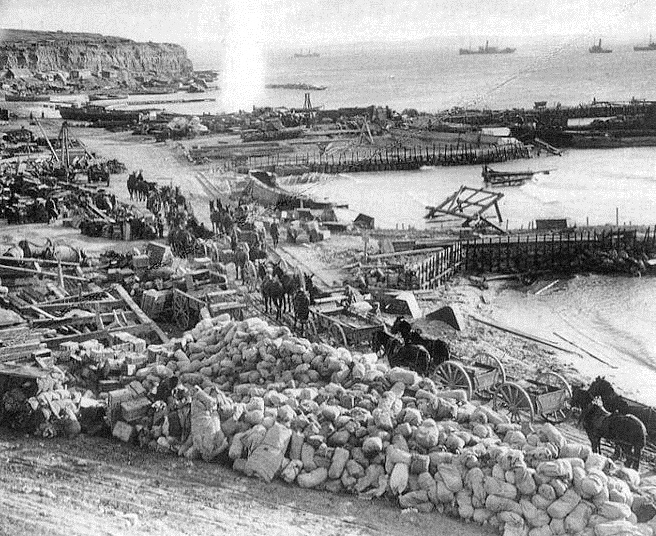Remembrance Sunday is always a sombre occasion but in recent years it seems to have been turned into some sort of season, like advent or lent, whereby everyone has to be seen to wear a poppy and publically show their gratitude to those who made the ultimate sacrifice. I find the whole thing is being rather devalued; it is hard to impress on to young people that a poppy stands for something and is not a mere fashion accessory when they quite possibly don’t know any World War veterans and their only knowledge of what was involved is dictated by dry history lessons, jingoistic old war films and tasteless Second World War themed computer games. There are now no First World War veterans left alive but I was lucky enough to know my grandfather who was a veteran of Gallipoli. He didn’t talk about his military service often but he did go to the local Legion and keep in touch with other veterans. However, when he did speak about the war he was fascinating - although his attitude to his military service often baffled me.
Being wounded in 1916 was a big deal: remember, this was
before the advent of antibiotics. By the time he had reached the hospital ship,
his arm had become infected and the wound was becoming gangrenous. The standard
medical procedure was to stop the spread of infection by amputation. However,
the doctors treating him could see that the wound was not that deep. They told
him that they could try to cut out the infected flesh but that it was risky and
that recovery would take a very long time. As I can recall him saying to me, “I
told the doctors: ‘Well, I’ve got the rest of my life to recover.’” In fact,
it’s worth considering his age. During the early stages of the war, signing up
to fight for King and Country was seen as a great adventure from which
everyone would be Home By Christmas and, when the Lancashire Fusiliers came
beckoning, it was a difficult offer to turn down: particularly as the scale of
the battles and the horror of mechanised warfare were largely unknown. My grandfather was just 17 when he faked his
papers to join up. He was barely 18 when the boats landed at Cape Helles. So
when he spoke of having the rest of his life he was talking about almost his
entire adult life. As it was, he did recover but it put an end to his military
career and the strength in his arm was limited – although he did serve as an
officer in the Home Guard during the Second World War (however, I couldn’t
imagine him as a Captain Mainwaring type character). He lived a surprisingly
long life; he died at the age of 92 and was honoured by members of the Legion
at his funeral.
The odd thing - the one thing that baffled me - is that he
had no regrets at all about signing up. My other grandfather served in
the RAF during World War Two and my father and most of my uncles have had some
sort of military service or conscription. I think their experiences varied: my
father seemed to enjoy his army life but his brother hated his: possibly as he
ended up in an active war zone. My mother’s brother served in the RAF during
the Malayan Emergency – I think he objected to having been conscripted into the
Air Force but he talks quite happily about it now. I also had a cousin who had
been sent in to assist survivors at a concentration camp in liberated Germany
who could barely talk about what he had witnessed. I would have imagined that
my grandfather may have had similar feelings. It was clear that the First World
War was a humanitarian disaster and largely avoidable so I imagined that, with
hindsight, no-one would willingly sign up to the conflict. However, this was
not the case with my grandfather: he said that he would have signed up again
“without a moment’s hesitation.“ I could never understand that: maybe it was
the rose tinted view of an old man or the stiff upper lipped bravado of a
Victorian upbringing. I will probably never know.
Now that Second World War veterans are almost as old as my
grandfather was, it is important for young people to get an idea of what war is
really about: not from action films and computer games, and not from wearing a
red poppy and showing faux grief during organised silences; but from actual
living testament of those who were there. I was lucky to be able to speak to
veterans and actually learn something of what they had witnessed. It is
important to realise that war is not merely history. What happened years ago
will affect people for the rest of their lives and their families’ lives. Our
leaders now seem far too trigger happy for my liking – it’s worth remembering
that their actions will have long lasting effects on real people.


No comments:
Post a Comment